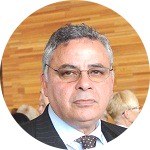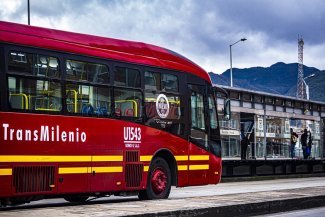Tunisia’s general labour union UGTT has been officially selected as a candidate for the 2014 Nobel Peace Prize by the Norwegian Nobel Committee, following its nomination by four Tunisian universities.
While we can’t predict its chances of winning there is no doubt that the UGTT’s achievements since it was founded in 1946, its part in the 2011 revolution and, more recently, its key contribution to the transition process in Tunisia, could lead the Nobel jury to pay tribute to the trade union movement for its role in promoting peace and progress around the world.
It has already done so once before, in 1983, when it awarded the prize to Solidarnosc leader Lech Walesa.
In December 2013, governments across the world welcomed the national consensus reached in Tunisia, which, just weeks later, was to lead to the adoption of a
new constitution approved by all the country’s political parties.
All around the world, special tribute was paid to the UGTT for having initiated and mediated the dialogue between fundamentally antagonistic ideological blocs and having ensured a successful outcome through its patience and perseverance.
Who would have thought, until that point, that dialogue alone could result in an agreement between the partisans of political Islam and those of a secular state ?
Or that the two camps would manage to agree on the same constitutional text ? It is a first in the Arab and Muslim world.
To fully grasp the scale of the challenge taken on by the Tunisian trade union organisation, we need to look back on what Tunisia has been through over the last three years.
A difficult journey
At the beginning of 2011, the Tunisian people came out onto the streets and brought an end to the 23-year dictatorship of Ben Ali. At the end of the year, a Constituent Assembly was elected with the mandate of passing a new constitution.
This election led to the victory of a coalition dominated by the Islamist Ennahda party.
The first sessions of the Assembly left no room for doubt as to the party’s theocratic ambitions.
Liberal and left-wing forces, which had been split during this first election, apparently learnt from their mistake and created a united democratic front, thus giving rise to a new balance of power.
The Islamist government proved ineffective in its day-to-day management of the country.
Living standards were falling at breakneck speed. Inflation, unemployment and the public deficit were growing ever worse. Attacks on rights and freedoms were multiplying and terrorism was spreading at an alarming rate.
Growing exasperation with the ruling party’s incompetence led to a sharp fall in its popularity. But the Ennahda party clung on to power, invoking its legitimacy as the elected government.
Day after day, the gulf between the real country and the legal country grew ever wider.
Worse still, the Constituent Assembly was making very slow progress and the public rejected the first drafts of the constitutional text. The country was divided into two diametrically opposed camps and people feared the worst.
In 2012, the UGTT presented its first proposal for the opening of a national dialogue. The ruling Islamist party rejected it. The country was brought to a standstill by trade union action and street protests.
Two secular party leaders wereshot dead in the middle of the street and over a hundred political figures were placed under police protection.
Meanwhile, in the mountains bordering with Algeria, an Al-Qaida version of the Maquis was taking root, and the army was struggling to disband it.
The UGTT presented a new proposal for a national dialogue but met with a second rebuff. Tunisia was on the point of imploding.
In October 2013, the UGTT’s third attempt succeeding in breaking the stalemate.
After around 70 days of painstaking, round-the-clock negotiations, which almost derailed several times, a road map and a timeline were finally drawn up to deal with the various points of contention, including the content of the constitution and the holding of fresh legislative and presidential elections.
The UGTT, heading a quartet which brought together the employers’ organisation, the Tunisian Bar Association and the Tunisian Human Rights League (LTDH), therefore managed to save the country from the threat of internal division, enabled the appointment of a consensus government and renewed the nation’s hope of a peaceful transition to democracy.
Better still, the text of the new constitution is the most liberal in the region and, in the future, elections in Tunisia will only be held under the control of an independent authority.
The significance of the Tunisian experience lies in that it has proved - in a region where religious, ethnic or territorial, conflicts are almost invariably settled by the force of arms - that dialogue, even between ideologically opposed forces, can lead to a compromise acceptable to all parties.
It is a lesson in tolerance that Tunisians have learnt together thanks to the tenacity of a workers’ organisation built on dialogue, which it has made - in line with its trade union vocation - its weapon of choice.
Another lesson to be drawn from the Tunisian experience, by contrast with other ‘Arab Spring’ countries, is that the existence of a representative and independent trade union movement and an organised civil society, capable of acting as a counterpower, offers a clear-cut warranty, in this part of the world, against a return to a new form of dictatorship.
In this respect, the UGTT has set an invaluable example. But will the Nobel jury deem it sufficient to award the labour union the 2014 Peace Prize ? We will have to wait until 10 October to find out !









